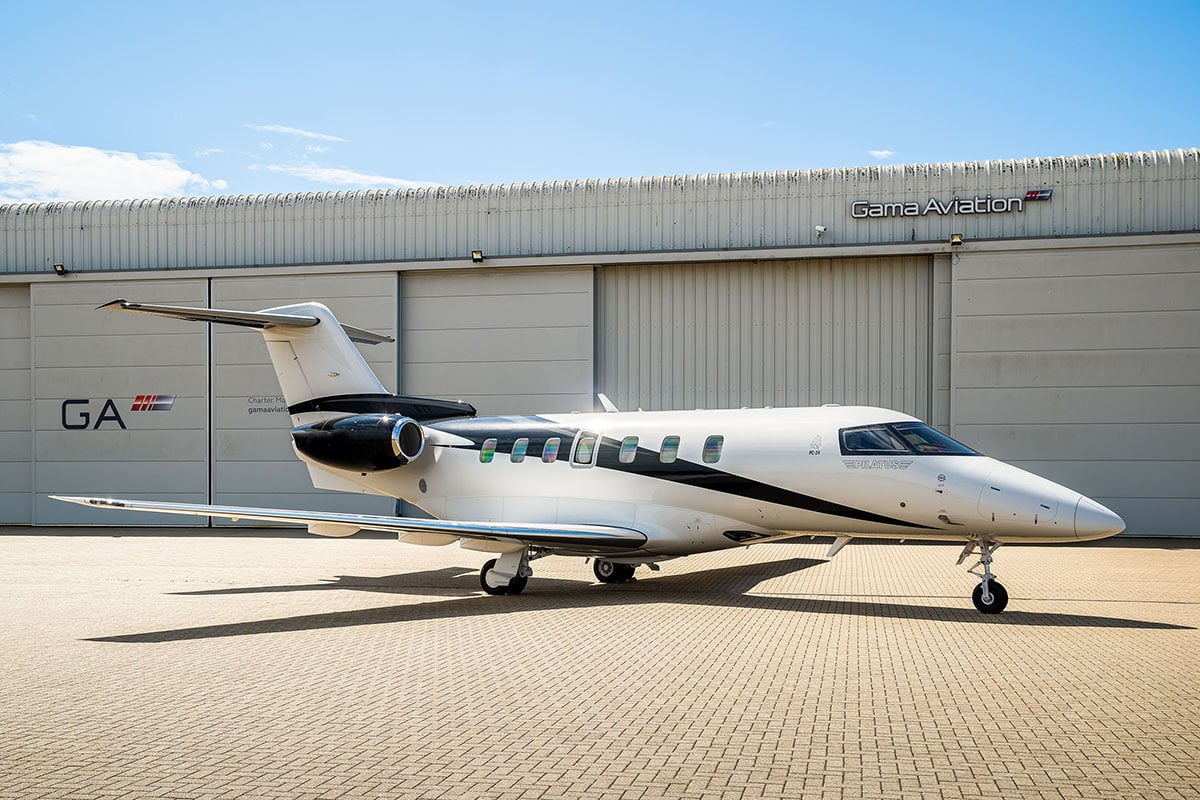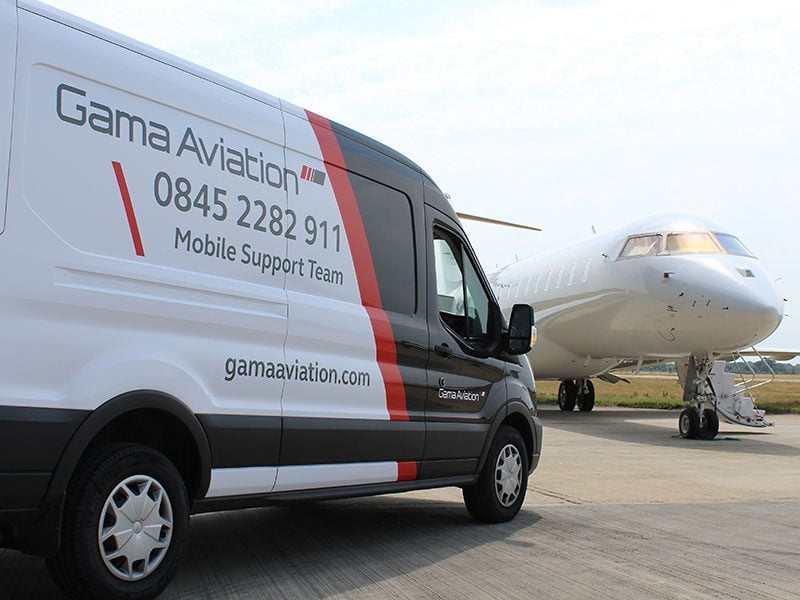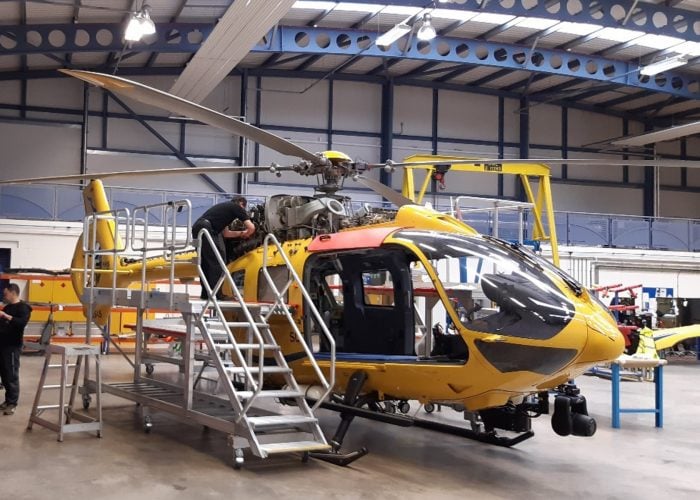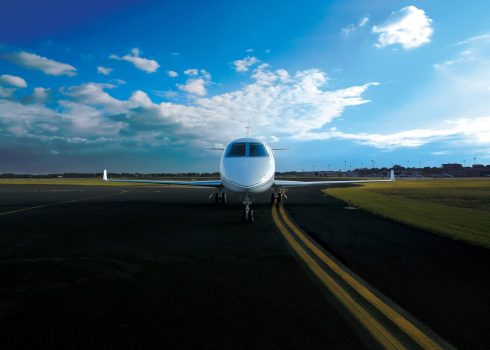Boutique Aircraft Management services
At Gama Aviation, we offer bespoke aircraft management services designed to take the complexity out of aircraft ownership. With over 35 years of experience, we are a trusted global leader in the aviation industry, providing tailored management solutions that maximise efficiency, safety, and cost-effectiveness. Whether you’re a private aircraft owner, a corporate operator, or managing a fleet, Gama Aviation’s expert team ensures that your aircraft is always ready to fly, maintained to the highest standards, and fully compliant with all regulatory requirements.
Why Choose Gama Aviation for Aircraft Management?
Our aircraft management services are built around the specific needs of each client, delivering a personalised experience that offers peace of mind and convenience. As a boutique aircraft management provider, we take pride in offering a level of service that is both flexible and proactive, ensuring that your aircraft operates smoothly and efficiently.
Comprehensive Support: We handle all aspects of managing your aircraft, from operational planning and crew management to maintenance oversight and regulatory compliance. This means that you can focus on enjoying the benefits of your aircraft, while we take care of the logistics.
Expertise in Compliance: Staying up to date with aviation regulations is complex. Gama Aviation ensures your aircraft adheres to the latest international aviation standards and local regulations, such as UK CAA, Bermuda, Cayman, EASA and FAA requirements. Our compliance team is dedicated to keeping your aircraft airworthy and legally compliant, no matter where in the world it operates.
Maintenance and Safety: Aircraft maintenance is one of the most critical aspects of management. Our dedicated maintenance teams ensure that your aircraft is maintained to the highest standards. We provide scheduled and unscheduled maintenance services, ensuring that your aircraft is safe, reliable, and ready to fly whenever you are.
Cost Efficiency: With Gama Aviation, you benefit from our global scale. We have access to exclusive pricing for fuel, insurance, and parts, passing these savings directly to our clients. Our transparent management approach means that you can optimise costs without compromising on the quality of service.
Flight Operations Management: From flight planning and scheduling to crew management and ground handling, Gama Aviation takes care of every detail to ensure seamless operations. We employ a dedicated team of experts to manage your flight requirements, making sure that every flight is efficient and tailored to your preferences.
A Tailored Approach to Aircraft Management
At Gama Aviation, we understand that every aircraft owner has unique requirements. That’s why our aircraft management services are fully customisable, offering tailored solutions that meet your specific needs. Whether you require full management services or support in specific areas such as maintenance or compliance, our team is here to support you.
We work closely with each client to understand their operational needs and personal preferences, allowing us to create a management plan that aligns with your goals. Our commitment to providing exceptional customer service means you can trust Gama Aviation to deliver a seamless management experience.
Global Reach, Personalised Service
With operations in the UK, Europe and Middle East, we have the global infrastructure to support aircraft management services wherever you are. Despite our global reach, we maintain a boutique approach, providing personalised attention and bespoke services to each client.
For more information on how our aircraft management services can benefit you, contact our team today. Experience the peace of mind that comes with having a trusted partner managing your aircraft, allowing you to focus on what truly matters.
Aircraft management is the term used to describe all of the services that are offered through a company that will operate your aircraft (we can at times refer to ourselves as ‘operators’). As the owner you’ll require the aircraft management company to provide all the services required to fly the aircraft, everything from sourcing and managing the pilots and flight attendants to making sure the aircraft is compliant with airworthiness regulations.
It is an involved job that can be devolved to your Chief Pilot under something called Part-NCC, however we would suggest that it is better to keep the role of flying away from all of the administrative tasks that your aircraft management team will take care of. This article explains why [click here].
Typical tasks that your team would perform are:
- Flight bookings
- Flight planning
- Charter marketing / sales
- Crew scheduling (holidays, training periods, sickness all have to be taken into account)
- Aircraft airworthiness reviews and tasks
- Programming maintenance and advising you of the aircraft’s ‘downtime’
- Maintenance procurement (we’ll always provide you with options and advice)
- Collating, managing and assigning invoices (everything from fuel, crew expenses, aircraft program costs, etc.)
- Crew management (effectively we become your HR department)
- Arranging post flight cleaning, laundry, restocking of the aircraft
Plus a whole host of small activities that help make the operation run smoothly.
Aircraft management costs can vary from ‘free’ (buyer beware) to between $5,000 and $15,000 a month depending on the aircraft size and how you wish to use the aircraft. Your monthly fee will typically take care of all the regulatory and logistic requirements required to operate the aircraft with variable costs and direct operating costs being in addition to the fee.
It is your choice whether you choose the ‘free model’ however be aware that this often comes with hidden charges for example a % handling fee on costs, inflated ForEx fees, commission or other devices that create a revenue stream. As in life, their is no such thing as a free lunch, so be aware particularly if this is your first aircraft.
Aside of your aircraft management fee the following costs will be payable:
Variable costs
- Airport & aircraft handling fees
- Aircraft catering
- Crew travel & subsistence (on occasion the crew will need to travel to & from your aircraft)
Direct operating costs
- Fuel (the majority of the cost of ownership)
- Navigation
- Maintenance
- Engine programs
- Operational support
Fixed costs
- Continued airworthiness fees
- Air crew costs
- Provision for scheduled maintenance
- Provision for parts and engines shortfall
- Insurance
- Parking / hangarage
- Air crew training
- Other fees (CAA fees, etc.)
In total the above (depending on aircraft type and its use) will cost between $1.5 million and up to $4.5 million a year. Major changes to this are only usually seen if the aircraft requires a major check which may add anything up to another $500 to $1.5 million to the annual operating costs of your business jet.
There are many factors to take into account when choosing an aircraft management company that vary from ensuring their competency to whether you can work with them or not. We’ve written a number of articles on this subject however here are five rules that may help (obviously we would like to welcome you to our family!)
Rule #1. Understand the financial stability of your aircraft management company.
With any other provider of asset management services, you will have run some form of due diligence into the financial fitness of your provider. It’s a common sense thing to do, but when was the last time you undertook this check when selecting an aircraft management company? As any owner knows, private jets run up large bills quickly, ones that can soon overtake any deposit kept by the operator on account. Unless rigorously managed, the impact on a management company’s cash flow can be terminal with consequences which may result in the temporary grounding of your aircraft. Companies running under 10 aircraft are particularly vulnerable as they often don’t have the provisions or bank facilities to overcome bad debt exposure.
Rule #2. Free management fees where’s the catch?
The word ‘free’ seduces many. Don’t believe it. Companies never offer free services; they are not charities. What you aren’t charged for up front you will almost certainly be charged for somewhere along the lines usually in the form of transaction, handling fees. We’ve heard horror stories of some clients being charged 15% mark-ups which, if true, is borderline robbery and serves as no incentive to safely reduce operational costs (always ask to see the invoices and where costs are being originated from to avoid this scenario).
Rule #3. Big or small? Which offers the best service?
Big companies say ‘scale’; small companies say ‘boutique’. In real terms these claims are not mutually exclusive. Great aircraft management companies deliver outstanding service, with passionate people who are focused on you, they also should actively manage your operational costs leverage their scale. If you’re not convinced, ask them to demonstrate how they can safely save you money while maintaining service,
Rule #4. Plan scenarios not hours flown.
Typically, as an aircraft management company you’re asked to pitch with an operational budget for a certain number of hours a year, typically 400. Unfortunately, this offers very little helpful data to make decisions as it bares no relationship to the use of the aircraft (when was the last time you booked a flight based on hours? Probably never.) For your Principal, the most reliable operational budget is achieved through scenario planning based on their typical flight profile for example Hong Kong – Las Vegas or London – Teterboro. These scenarios will provide a far more accurate budget and cost per hour for the trip. Why? 10 flights to Moscow in winter will cost more than 10 flights in the summer but both will have the same number of flight hours.
Rule #5. Marginal gains make big differences.
We’ll admit some editorial bias here, but it is important. Scale operators buy substantial volumes of fuel, training and other high cost items. It is a reality of their day-to-day business, with purchasing team’s set-up specifically to do this. Smaller operators don’t have this luxury and they don’t have direct to vendor relationships. On occasion it is true that costs can be beaten (nobody is perfect), in which case let your aircraft management team know. After all, they will want the intelligence to make sure they get a better deal for you in the future.
If you’re in doubt ask us
Choosing a new aircraft management company is no easy task however I hope the rules above can help you. If you are in any doubt, why not ask us? We’d be happy to advise you and indicate where you can save operational cost. After all it’s what we do, day in and day out, worldwide.
A number of our clients do provide their aircraft to list on our charter fleet. This allows you to defray some of the costs of ownership as well as making sure that technical items such as engine and maintenance minimum contracts (typically 400 hours) are being adhered to. To help, some of the pros & cons of doing this are listed below:
Pros
- Revenue from the charter flights can be used defray some of the ownership costs
- You can avoid minimum hours programme penalties
Cons
- The charter market is saturated with aircraft with supply exceeding demand
- You will not make a profit on charter
- You cannot fly in your aircraft if it is on a charter flight (an obvious point but…)
- You may require more crew (particularly for the larger aircraft with intercontinental capability)
- The aircraft will experience some wear and tear
In the current market context the ‘cons’ may outweigh the ‘pros’ simply because the charter margin is so small.
Once again we are happy to guide you or your team through this process using industry information and real world examples to determine what the right course of action would be for you.
Contact us
Aircraft management Contact Details
Supported aircraft
Gulfstream 500 series
The Gulfstream 500 series. Our management, maintenance and charter teams have extensive experience with the G500 and G550 Gulfstream models.
Read moreGulfstream 600 series
The Gulfstream 600 series, showcasing excellence in business aviation, the G600, G650 and G650ER.
Read moreBombardier Challenger series
We offer availability and expertise across the Bombardier Challenger series of aircraft, including charter services, maintenance approval and capabilities and we have extensive management experience, having owned and operated Bombardier Challenger aircraft ourselves and for our clients.
Read moreCessna Citation series
We offer availability and expertise across the Cessna Citation series of aircraft, including charter services and extensive management experience, having owned and operated Cessna Citation aircraft ourselves and for our clients.
Read more




